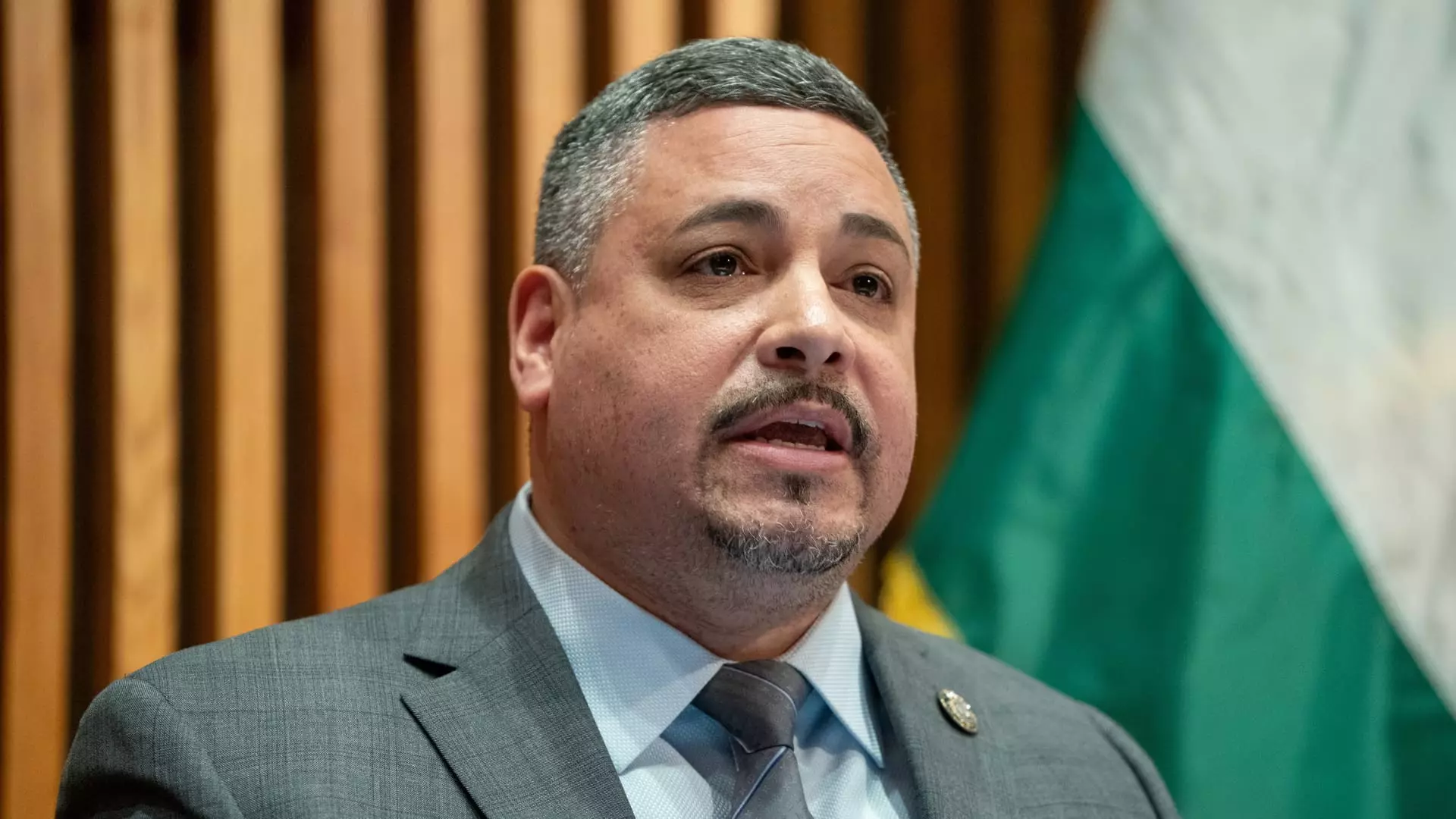The recent resignation of NYPD Commissioner Edward Caban has sent ripples through the law enforcement community and New York City at large. Appointed in July 2023, Caban’s tenure as the first Latino commissioner of the NYPD ended abruptly, becoming yet another chapter in an ongoing narrative of scandals and inquiries that have plagued the department. His resignation not only raises eyebrows about governance within the NYPD but also reflects the broader issues of accountability and the integrity of leadership in public service.
In a memo disclosed to the public, Commissioner Caban expressed that his decision was driven by a deep sense of duty towards the NYPD and its officers, stating, “the noise around recent developments has made that impossible.” His assertion of prioritizing the department’s mission over personal interests showcases a commendable sense of responsibility; however, the overshadowing federal investigation points to deeper systemic problems within the NYPD. With allegations of corruption linked to nightclub enforcement, the inquiry brings into focus questions of potential misconduct that ultimately necessitated such an action.
Caban’s comments highlight a critical point: the pressures and expectations faced by high-ranking officials in law enforcement. His brief time in office not only calls into question the internal dynamics of the NYPD but also reflects broader societal concerns regarding the conduct of those in power. The swift change in leadership under Mayor Eric Adams, who is now searching for a third police commissioner, underscores a potential instability that jeopardizes public trust in one of the nation’s largest police forces.
The context of Caban’s resignation unveils a troubling investigation involving both the IRS and the Southern District of New York. Evidence surfaced regarding potential corruption that stems from connections to his twin brother, who operates a nightclub security business. Reports indicate that investigators are probing whether Caban’s brother acted as a liaison between the NYPD and local bars, particularly those that enjoyed preferential treatment in exchange for financial kickbacks. This scenario raises critical ethical questions about favoritism and the abuse of power within law enforcement.
Moreover, if the claims regarding promotional favors for compliant officers are substantiated, it could signify a troubling precedent within the department. The prospect that officers may face punitive actions based on their compliance—or lack thereof—with illegal arrangements complicates their duties and further erodes public trust in police figures who are supposed to uphold the law.
With the acceptance of Caban’s resignation, the NYPD now faces another critical juncture. Tom Donlon has been appointed as interim commissioner while a long-term successor is sought. This emergency leadership transition may have ramifications for the ongoing efforts to address public safety and restore faith in policing, particularly in a city that has witnessed numerous upheavals in law enforcement leadership in recent years. The question remains: how can the NYPD rebuild credibility while it is marred in controversy?
Calls for integrity and transparency in policing have intensified, and heavy scrutiny will accompany whoever assumes the role as the next commissioner. The onus now lies in demonstrating that the NYPD can rise above internal challenges and restore faith among New Yorkers. For lasting and impactful change, the new leadership will need to assess and reform departmental policies and cultivate a culture that prioritizes ethical conduct.
While Caban’s resignation paints an intricate picture of challenges faced by law enforcement leaders, it also accentuates the importance of service and accountability. Caban’s attorneys have expressed pride in his commitment to public safety, reinforcing the idea that integrity in leadership is crucial. As the dust settles on this latest chapter in NYPD history, it serves as a stark reminder of the accountability essential in all facets of public service.
In the wake of his departure, the NYPD stands at a crossroads where the choices made by the new leadership will not only affect the future of the department but will also shape public perceptions of law enforcement in New York City. Moving forward, the hope is for a recommitment to ethical governance and responsible policing—priorities that are essential to fostering both public safety and community trust.


Leave a Reply